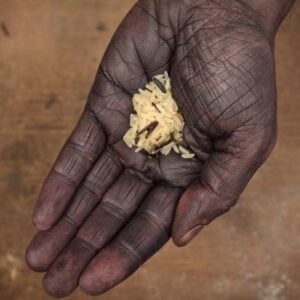High food prices continue to impact people across the globe, especially in low-income countries. At a special event for the upcoming State of Food Security and Nutrition in the World 2025 (SOFI 2025) report, Alvaro Lario, President of the International Fund for Agricultural Development (IFAD), emphasized the urgent need for strategic investments in agriculture and rural development. His statement, delivered at the UN’s ECOSOC High-Level Political Forum in New York, underscored the importance of these investments in preventing further food price spikes and ensuring universal access to nutritious diets.
The report attributes recent food price inflation to several factors, including fiscal and monetary responses to the COVID-19 pandemic, the war in Ukraine, and ongoing climate shocks. These influences have significantly raised food prices, with the global median food inflation rate rising from 2.3% in December 2020 to 13.6% in early 2023. The situation has been especially severe in low-income countries, where inflation peaked at 30% in May 2023. While policy tools such as monetary measures and social protection can help cushion the effects, the report stresses the need for sustained investment in agriculture and food systems to ensure long-term stability.
Strategic investments are particularly crucial in building climate-resilient agriculture and improving infrastructure for post-harvest handling, transport, storage, and market access. Strengthening market information systems is also vital to reduce bottlenecks, avoid distortions, and stabilize prices across food value chains. These actions can enhance productivity and support the overall resilience of food systems.
Rural small and medium-sized enterprises (SMEs) are a key part of this transformation. These businesses help small-scale producers access markets and create job opportunities in rural areas. This economic activity supports income diversification and enables rural households to afford healthier, more nutritious foods.
Despite the critical role of agriculture, current levels of Official Development Assistance (ODA) are insufficient. Donor support has remained stagnant at 4–6% of total aid, amounting to only $10 billion in 2023. Furthermore, few African countries have met the commitment to allocate 10% of their national budgets to agriculture, as agreed in the 2024 Malabo Declaration. In response, IFAD has called for smarter financing to unlock the estimated $4.5 trillion in opportunities within agrifood systems. The organization also pledged to advance innovative financial tools that can mobilize increased public and private investments in rural development across the Global South.






